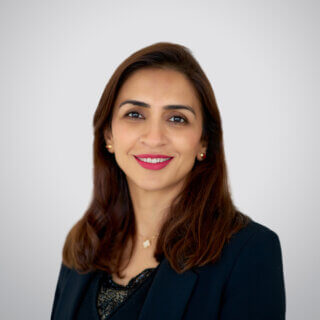Solid tumors, also known as solid cancers, is an abnormal growth of cells that do not contain liquid or cysts. These solid tumors can occur as benign (non-cancerous), which means they do not spread to other parts of the body; or can occur as malignant (cancerous) hence having the capability of spreading to other parts of the body if they are not treated in a timely manner.
Where Do Solid Tumors Occur?
Based on where they occur in or on the body, solid tumors happen in three categories.
- Lymphomas: These are specific cancers that form in the lymphocytes, which are the infection-fighting cells found in the immune system. These types of cancers occur in areas like the bone marrow, lymph nodes, spleen and thymus.
- Carcinomas: This is the most common type of cancer, and it starts developing on the tissue that line the inside and/or the outside organs of the body. Types of carcinomas include squamous cell carcinoma, basal cell carcinoma, ductal carcinoma in situ, renal cell carcinoma, adenocarcinoma, and invasive ductal carcinoma.
- Sarcomas: This is a broad group of cancers that originate from the soft connective tissues (fat, blood vessels, cartilage, nerves, tendons and muscles), and bones. Sarcomas come in more than 70 different types. However, Sarcomas are considered quite rare, and tend to affect mostly children and young adults; but they can affect anyone at any age group.
Types of Solid Tumors
There are different types of solid tumors, and these include:
Breast Cancer: This is the most common cancer among women, although it occurs among men as well. It can begin in the milk-producing ducts or the glandular tissue. Breast cancer can appear on its own, or it can be genetic.
Pancreatic Cancer: This is a type of cancer that occurs in the pancreatic cells. The pancreas is found at the back of the lower abdomen, and its major role is to aid digestion by releasing enzymes and managing the body’s blood sugar. Pancreatic cancer is very aggressive, and usually has very few symptoms before it reaches an advanced stage.
Colorectal Cancer: Also known as colon cancer, bowel cancer, or rectal cancer, this cancer affects the colon and/or the rectum.
Head and Neck Cancer: This is a term used to describe several cancers found in the head and neck areas. These include cancer of the larynx cancer, nose, throat, lips, mouth, salivary glands, facial skin, and sinus.
Cervical Cancer: This type of cancer occurs in the cervix, an organ that connects the uterus to the vagina.
Lung Cancer: This is a type of cancer that occurs in the lungs and is considered one of the most common causes of cancer deaths.
Thyroid Cancer: Considered as a rare type of cancer, thyroid cancer affects the thyroid gland tissues. There are different types of thyroid cancer, which include Follicular thyroid cancer, Medullary thyroid cancer, Papillary thyroid cancer, Anaplastic thyroid cancer, and Hurthle cell.
Gastric Cancer: Also known as stomach cancer, this type of cancer starts developing on the lining of the stomach and is mostly caused by gastric carcinomas.
Diagnosis of Solid Tumors
Solid tumors can be diagnosed in different ways, with some being found while the patient is undergoing a routine test or screening. Still, to get a definitive diagnosis of the type of solid tumor, if it’s benign or malignant, and the stage, the physician will order several tests, which include:
- X-ray
- Mammogram
- CT Scanning
- Biopsy
- Endoscopy
- PET Scanning
- MRI and Ultrasound
Treatment of Solid Tumors
Treatment of solid tumors is dependent on the symptoms, type of the tumor, stage of the tumor and the overall health condition of the patient. The oncologist creates a treatment plan to fit the overall condition of the said tumor keeping the patient’s health condition in mind.
Some of the treatment options for solid tumors include:
- Surgery to remove the tumor
- Chemotherapy
- Radiation
- Targeted therapy
- Immunotherapy
Next Step
At King’s College Hospital Dubai, we focus on offering an exemplary service. From initial consultation through to final diagnosis, treatment and beyond. Our multidisciplinary team of expert doctors and nurses, and technologists led by Dr Hassan Ghazal – an American triple board-certified Consultant Medical Oncologist and a Consultant Clinical Hematologist with more than 3 decades of clinical experience, are here to offer tailored management and treatment of your condition, and to answer any questions that you may have throughout your time with us. Whatever you need us for, we’re only a phone-call away.
BOOK AN APPOINTMENT


